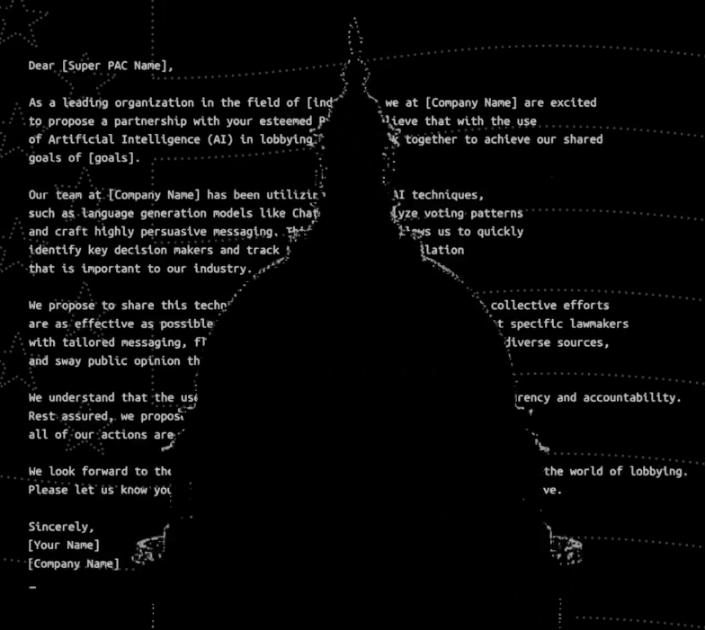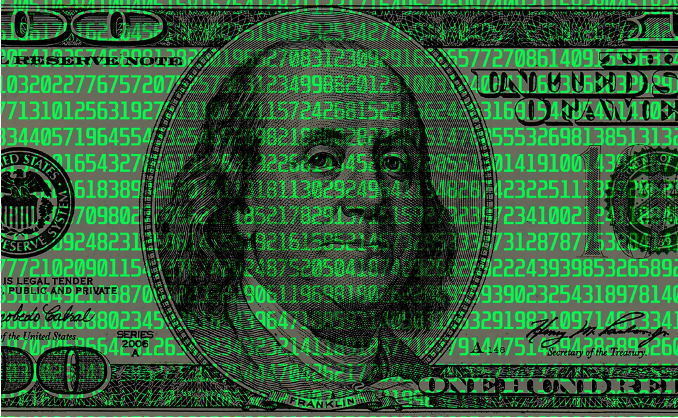"Hello World": Exodus to the AI World
"ChatGPT is a conversational AI model developed by OpenAI. It's based on the GPT (Generative Pre-trained Transformer) architecture and has been trained on a diverse range of text data, allowing it to generate human-like responses to a wide range of topics."
This text, generated by ChatGPT with "What is ChatGPT?" as the prompt, gives a glimpse of its capabilities. This technological advancement came as a shock to many, as the technology was deemed unfinished by many experts.
In January of 2023, the Wall Street Journal conducted a social experiment where the reporter used ChatGPT to create an essay for Advanced Placement (AP) English Literature mock exam. The text generated by ChatGPT was given a score of 3 out of 6, showing significant flaws such as factual inaccuracies, logical fallacies, and other minor mistakes. However, recent reports indicate that ChatGPT can pass higher-level exams such as the LSAT, Bar Exam, and US Medical College Admission Test (MCAT). While the program's rapid growth is a technological milestone, it has raised many doubts and created fear over such technology. Thus, through this article, The Sogang Herald intends to analyze the social impact ChatGPT is having on society and, by extension, what GPT technology can offer humanity.
The Great Teacher that Inspires
The use of technology as a general apparatus should align with ethical and responsible practices. However, ChatGPT's ability to generate human-like text presents an unprecedented threat to academic integrity. There have already been cases where students plagiarized ChatGPT's product to finish assignments and exams. Especially since the current educational environment values higher grades over the critical goals of learning, research, and knowledge, individuals are incentivized to use such technology for their benefit. To date, GPT technology is primarily being misused in high school programs where a superficial level of logic is sufficient to get a high score. However, as GPT technology progresses, it can be used at higher levels of education, such as university and in standardized exams.
Yet, while using ChatGPT in an educational setting is frowned upon, there are also unsolved legal implications. While copying a person's work is prohibited under copyright laws, an AI's product is not protected by the law. In the United States, there have been precedents where AI was denied its copyright protection since it was not the result of human creativity. At this point, people can abuse ChatGPT in order to profit. While if a student plagiarizes ChatGPT's product for academic or commercial purposes, there are no legal grounds to punish such students. Furthermore, since ChatGPT uses pre-existing text generated by humans to build its archive, some are concerned that ChatGPT itself is breaching copyright laws.
While currently, plagiarism checks through software such as TurnItIn could detect malfeasance, as GPT technology progresses, its ability to create unique text would make traditional means of detecting academic wrongdoings obsolete. Currently, ChatGPT heavily relies on pre-existing text, which makes it easily detectable by plagiarism checkers.
According to Professor Stephen Barnard, English Professor at Sogang University, there were a few suspected cases of foul play. However, Professor Stephen Barnard also pointed out that no bulletproof measures can detect the use of ChatGPT since the student can simply "tweak it enough to avoid detection". To further test the ability of ChatGPT, The Sogang Herald conducted an academic experiment. In this experiment, The Sogang Herald used ChatGPT to generate a sample answer to one of the assignments given by Professor Stephen Barnard and asked the professor to evaluate the text generated by ChatGPT. According to the professor, "the GPT generated text completed the assignment according to the specifications I laid out" and is "difficult to distinguish it from a student's work". However, its limitation was also apparent as it lacked "absolutely any sense of style or personality" and was "bloodless and boring to read". When asked about Sogang University's policy, Professor Stephen Barnard said there are no concrete plans or countermeasures other than words of warning; "Don't use it". However, as GPT technology progressed, GPT became a subject of interest during staff meetings. However, it should be noted that GPT-generated text is not considered an individual's work. Thus, it is still punishable and subject to the University's academic integrity guidelines.
Indeed this technology can change the current norm. Nevertheless, society is not unfamiliar with changes caused by technological advancement but has benefited from such shifts. When the computer was first introduced, the fear of computers replacing humans in all aspects of civilization was rampant. Yet, humans, in turn, have utilized this technology to deliver higher productivity and have used it to improve their livelihood. The same principle can be applied to ChatGPT, which could yield a positive result if utilized correctly. As advertised by OpenAI, ChatGPT could be used as an educational tool that can compress vast information into a simple text or answer questions from individual student’s question, which was unfeasible in a large class. However, Professor Stephen Barnard pointed out that over-dependence on GPT can limit students’ “skills that can only be acquired by doing the necessary legwork” and impede “the development of critical thinking skills” of young students. Technology, no matter its intended purpose or its capability, in the end, is good or bad, depending on how it is used.
[Insert name], Leadership [Insert country/state] Deserves
While education is the immediate field affected by GPT technology, ChatGPT's influence transcends every crevice of our society. The ability of GPT technology to create communications like emails, college essays, and myriad other forms of writing that are eerily close to that of a human can be utilized in different areas. Even now, it is threatening to replace humans in the democratic process, not through voting, but through lobbying.

©NYTimes
Lobbying, meaning; seeking to influence the outcome of an issue, can be done without humans by GPT technology. Once the targeted individual is identified and a campaigning strategy is created with a simple click of a button, ChatGPT, and other GPT technology can create tailored letters. These letters are designed to address individual voters' concerns making it more likely that these individuals will vote for a particular candidate or legislation. Since the technology does not require added capital or human labor, it can be scaled up and used on the masses, giving a politician a megaphone that can reach millions of individuals.
ChatGPT could be a beneficial tool for politicians that will allow them to communicate with their constituents. Yet, due to its potential ability, GPT technology will likely bring chaos to the already polarized political world and society. While ChatGPT and other GPT technology do not specify which type of source materials are used to generate a text, ChatGPT and other GPT technology will likely create false statements and generate misleading information. Suppose these "errors" result from using unverified and sometimes even flat-out incorrect information as its source material. Thus, if such false information is generated by ChatGPT and utilized by a politician, it can agitate people on specific issues, further polarizing the political landscape.
It could also make it easier for 3rd party actors to influence a political outcome. For instance, in 2016, the Russian Internet Research Agency was accused of creating thousands of "troll accounts" in hopes of influencing the outcomes of the 2016 US elections. It is estimated that Russia spent more than $1.25 million every month during this process. However, it might be a lot easier and cheaper with the help of ChatGPT. Suppose a bad actor intends to sabotage or influence a political outcome. In that case, it can now be done with nothing more than a single laptop. The only thing different this time is that it can't be stopped. During the 2016 Russian involvement in the US election, Twitter and Facebook took down millions of social media posts created by these troll accounts by discovering human errors. By contrast, GPT technology's ability to mimic humans makes this method obsolete; thus, it is important that society should come up with countermeasures and prepare for the upcoming AI world.
The 21st Century's Workhorse
When a new technology is invented, it brings changes to society. Similar to when the textile machine was first invented during the industrial revolution, ChatGPT could replace humans in the workforce. However, unlike the textile machine, which only replaced a few hundred needleworkers, GPT technology could potentially replace millions of people across different areas of the economy.
If fully adopted, ChatGPT could replace all human labor in the service industry. Workers in call centers, customer service, media such as print news, and content development can be superseded by machines equipped with ChatGPT. Since these industries are mainly composed of unskilled labor, the social impact will be huge, and transitioning to a new job will be a challenging task for them. Additionally, imagining the limitations of ChatGPT's progress is hard. In that case, it could replace coders, data analysts, and lawyers, and from there, the possibilities are endless.

©NYTimes
When these jobs are gone, millions of unemployed workers will be hustled onto the streets, and these people will become a burden to society, a burden whose price society will have to bear. Therefore, it is reasonable to fear this technology as it affects people from different backgrounds and social classes. Banning ChatGPT and GPT technology in these job areas might be a simple and effective solution. Yet, it can also hinder the progress of technology and stagnate the growth of society. The world has no end, and what is good for one person is an abomination to another. Thus, the task of regulating or de-regulating the use of this technology will become humanity's most critical task in the near future.
The End of a Beginning
To improve is to change; to perfect is to change often, said Winston Churchill. While humans are no strangers to change, change is always feared. ChatGPT and GPT technology, while in its infant stage, showed us a glimpse of our future and, at the same time, made the future more unpredictable. If push comes to shove, it is crucial for society to get over this conundrum. Soon human civilization will stand at a crossroad of whether to maintain the current norm or to accept change and allow it to take its natural course.
By Park Sebon (Int’l & Social Editor)
parksebon@sogang.ac.kr
